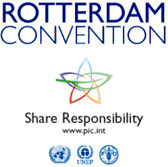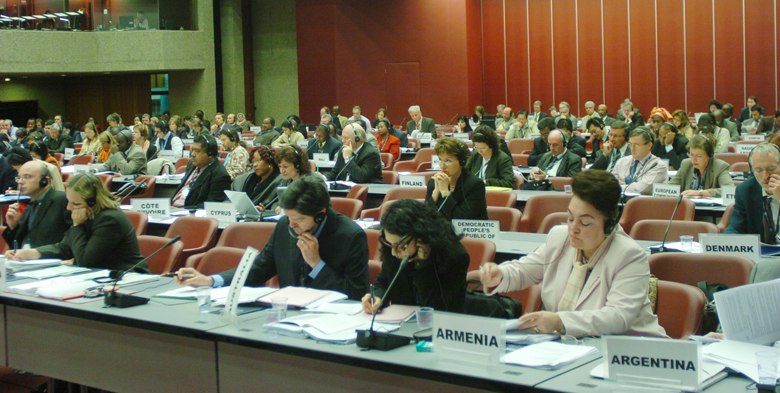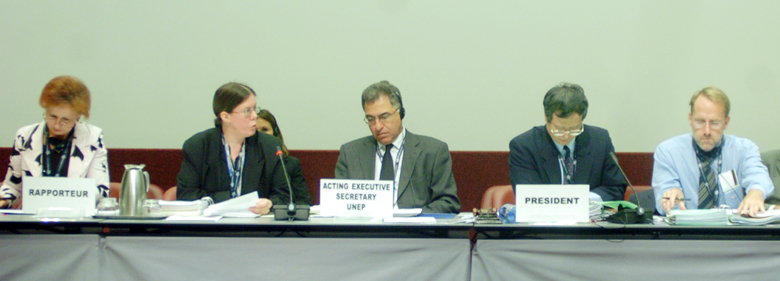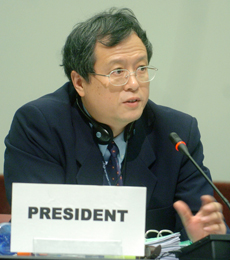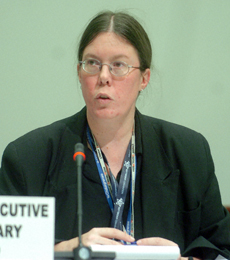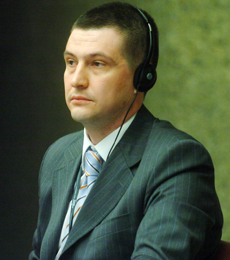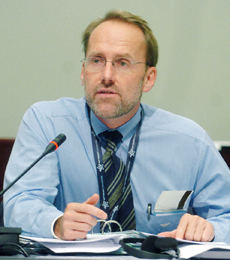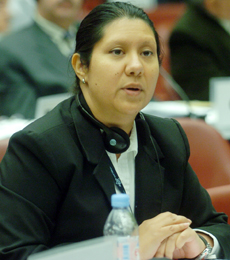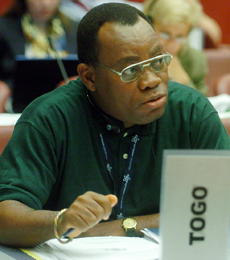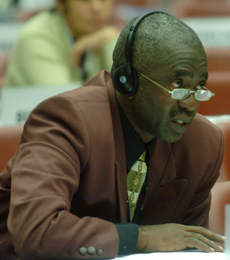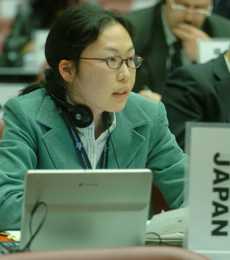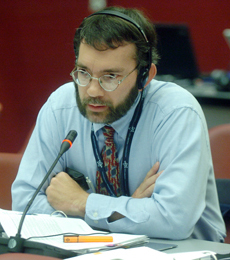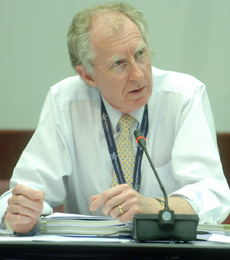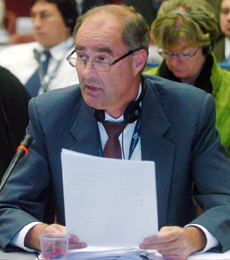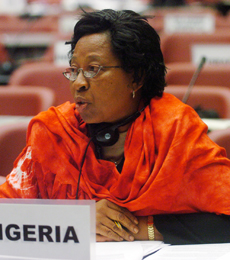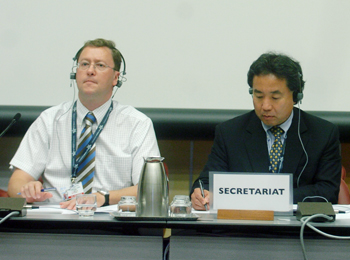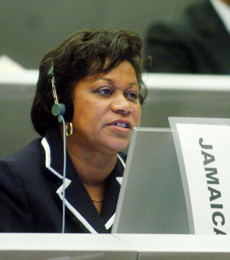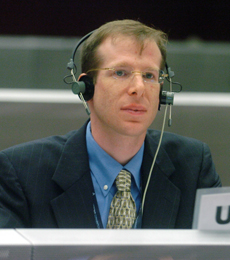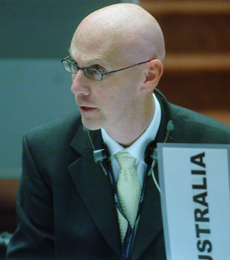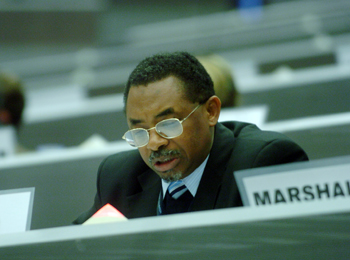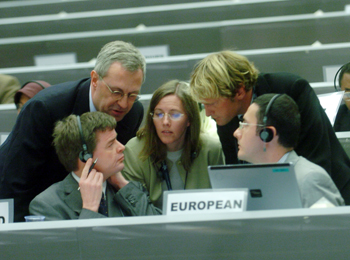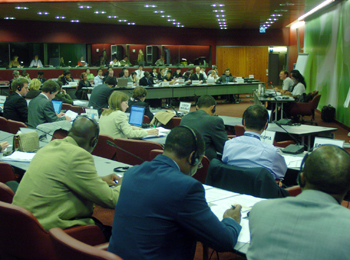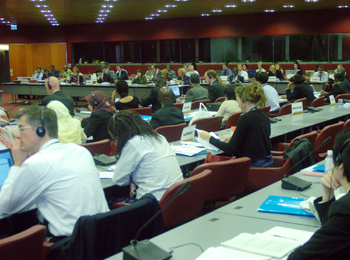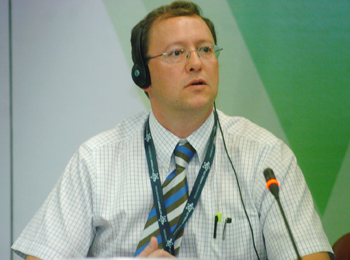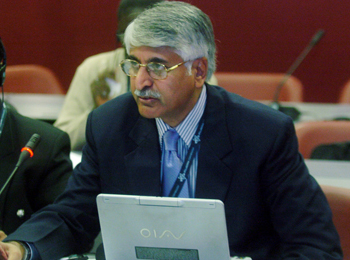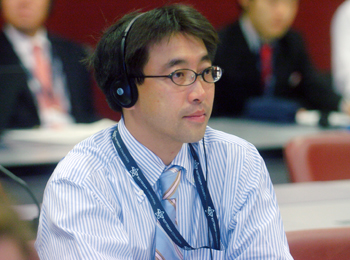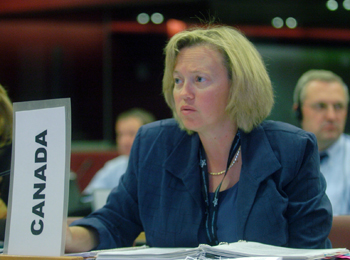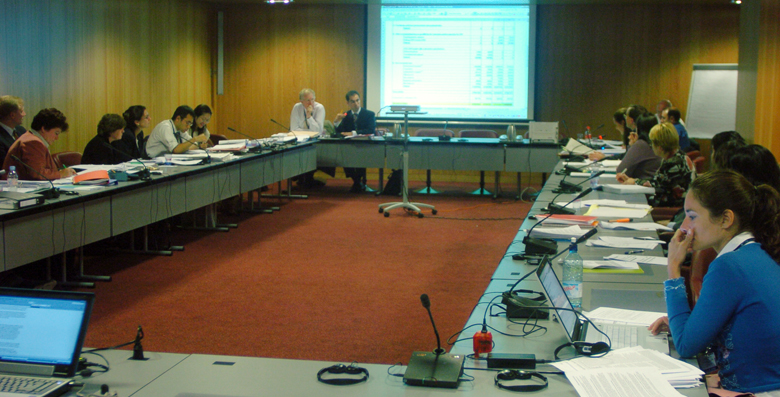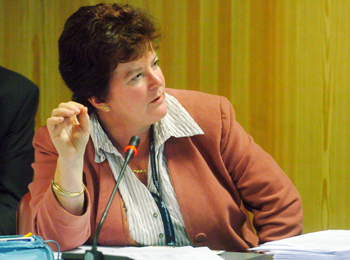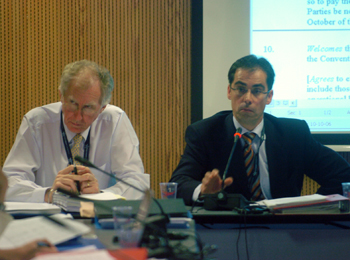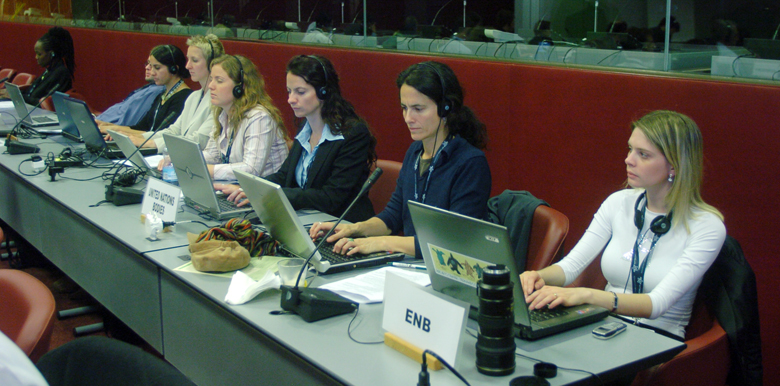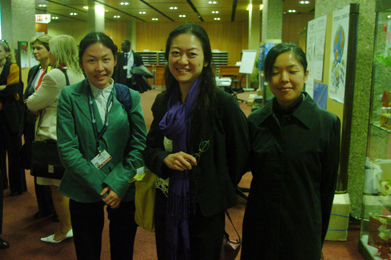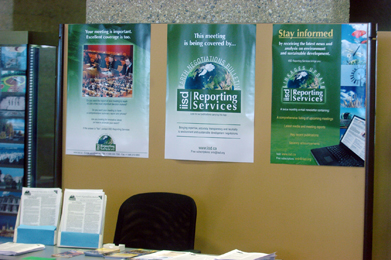
|
||||||||||||||||||||||||||||||||||||||||||||||||||||||||
Monday, 9 October - Tuesday, 10 October - Wednesday, 11 October - Thursday, 12 October - Friday, 13 October
|
||||||||||||
L-R: Maria Teriosina, COP-3 rapporteur; Sheila Logan, Rotterdam Convention Secretariat; Maged Younes, Head of UNEP Chemicals; Yue Ruisheng, PIC COP-3 President; and Bill Murray, Secretariat.
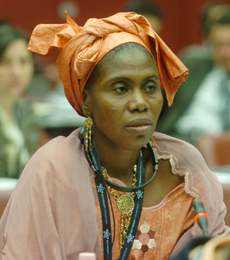 |
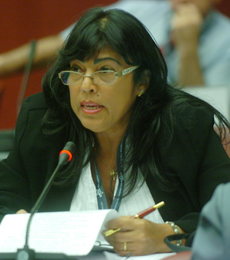 |
||||
|
Fragamou Sy Diop, Senegal, commented on the proposed approach to technical assistance to the implementation of the Convention.
|
Virginia Negretti, Venezuela
|
||||
On measures, the group did not make progress on the bracketed measure recommending a non-compliant party to take steps to remedy the non-compliant situation, such as re-import/re-export of the chemical or safe disposal at the expense of the non-complaint party.
L-R: Denis Langlois, Foreign Affairs Canada; and Masa Nagai, Secretariat.
L-R: Denis Langlois, Foreign Affairs Canada; and Naresh Dayal, Ministry of Environment & Forests of India.
Monday, 9 October - Tuesday, 10 October - Wednesday, 11 October - Thursday, 12 October - Friday, 13 October
|
Related links
|
|||
|
|
Links to IISD RS coverage
|
|||
|
|
|||
|
|
|
|
|
|
|


